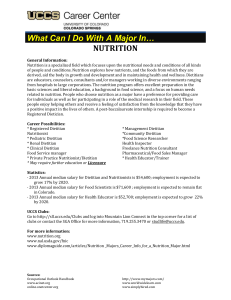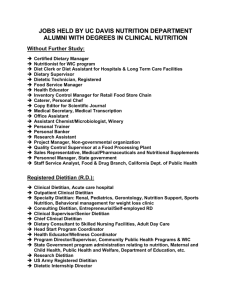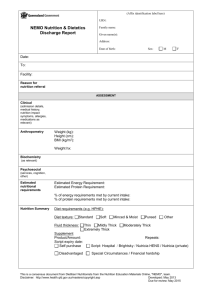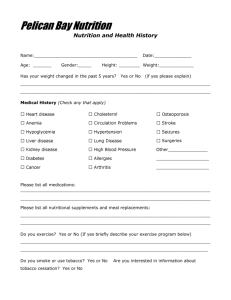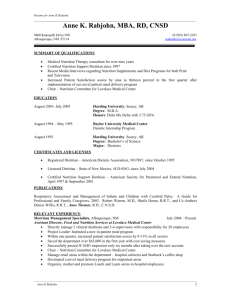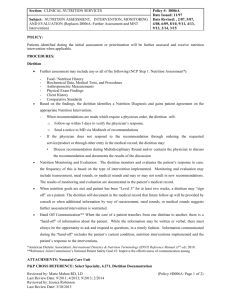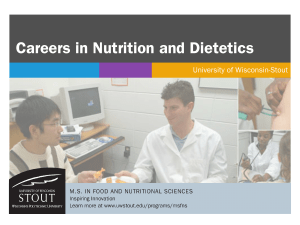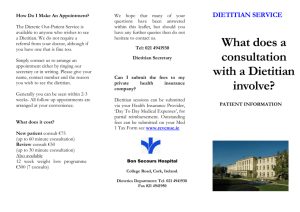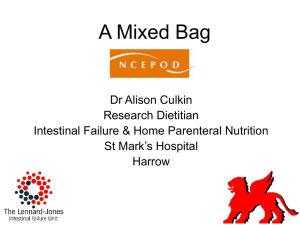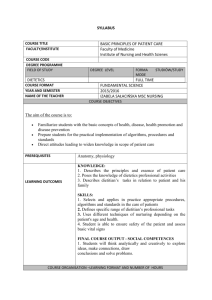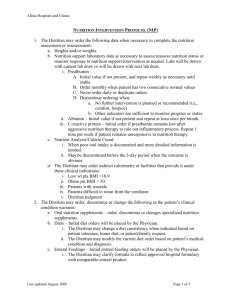presentation
advertisement
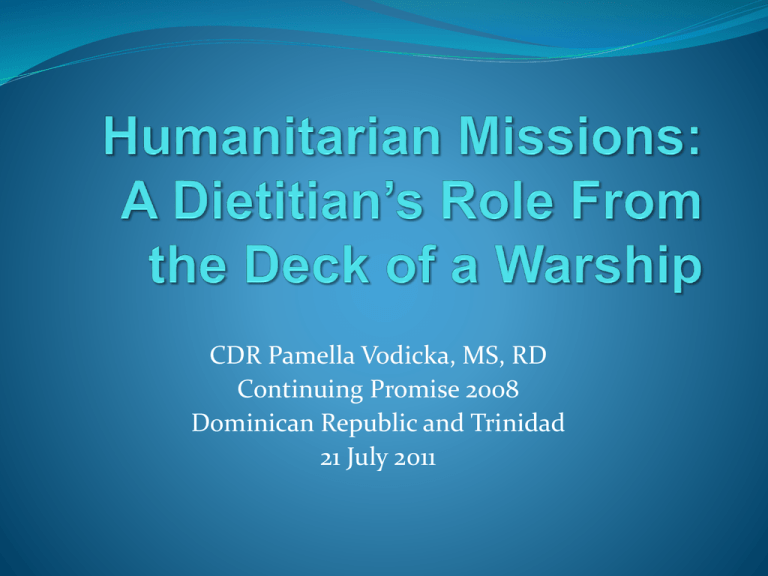
CDR Pamella Vodicka, MS, RD Continuing Promise 2008 Dominican Republic and Trinidad 21 July 2011 Objectives Describe the intention of the role of the Preventive Medicine (PrevMed) Team. Identify opportunities for the PHS dietitian in support of the PrevMed’s community service. Describe lessons learned and next steps in the support of the PHS dietitian’s role in future mission opportunities. Opportunity for humanitarian participation… …a door opens 7 JUL - OFRD has opened up an additional slot for Community Health Advisors 11 JUL – “You have been selected to participate as a member of the USS Kearsarge detachment Team 2 (SEPT 11 – OCT 19).” 6 SEPT – MISSION DELAYED (Gustav & Hannah hit Haiti) 22 SEPT – Team 2’s mission begins…first stop Haiti…then the USS Kearsarge. Assignment: Preventive Medicine Team (Prev Med) Directorate: CDR Andrea Parodi, RN Deputy Administrator: LCDR Bernie MacDonald The team’s mission is to work with partner-nation counterparts to evaluate municipal processes and educate local citizens in order to increase safety and improve health and hygiene. The education goal is to teach local citizens basic public health and hygiene. The Prev Med Team: A dietitian’s role I am to team with LTJG Molly Moffitt, RN (Ob-Gyn and Pediatric Nurse) Materials are limited; first task is to review what is on board and determine what might be of need (as we wait for the stop in Haiti to conclude). Available resources… One pagers (Spanish): • • • • • Vomiting & Diarrhea Water Treatment Food Allergies Lead Poisoning Rules for Eating Healthy • Breastfeeding – proper placement One pagers (Spanish): • Food Pyramid Multi-page Booklets (Spanish): • Lactation • Women’s Health Sequence of Events Review Pre-Deployment Site Visit Determine potential Prev Med opportunities Directorate works with ship and visiting-nation counterparts to develop plan Once at site, reassess and optimize the moment DOM REP ACTIVITIES 22 September – 15 October Crafted posters on nutrition and health, including the Latin America Food Pyramid; Assisted with the fluoride treatment program; Conducted nutrition consults; Planned a community nutrition experience for visitors waiting for appointments; Conducted nutrition education classes at local schools TRINIDAD ACTIVITIES 25 October – 6 November Expert exchange with local, host nation, dietitian resulting in guest lecture opportunity at Arima Health Department Clinic Antenatal guest lecture Pediatric guest lecture Participated in multidisciplinary intervention for children with cerebral palsy Team consisted of MD (physician), PT (physical therapist), OT (occupational therapist), and dietitian (myself). Referrals for 41 diet/nutrition assessments and individual counseling Our results… …in the words of the Commodore… An Act of Diplomacy A Humanitarian Civil Action Our results… …in the words of a PHS Dietitian… Opportunities for the PHS dietitian officer are many Who better to have on a team when there is need to put expectations aside and engage creative thought for an individual or community in need Comments from the Ship… It was great having you aboard the ship and on the mission. I think the role of the dietician depends largely on the socioeconomic status of the country we are visiting. In Colombia to some extent, DOMREP and TandT we saw lots of obesity, diabetes and HTN. People were receptive to education and dietary counseling. However, in Nicaragua and Haiti, for example, the problem was access to food and diabetes was uncommon. I am not really sure what a dietician could do in those settings. Perhaps they could be involved in teaching locals what they could grow to give them the biggest bang for the buck. But you would need to know an extremely large amount about local customs, growing seasons etc. So in summary, the usefulness depends largely on the site. Comments from the Ship… I think you found a role wherever you went, but I also agree with X somewhat. You can always teach nutrition, but the question is the ability of the people to respond to it. Many of the countries we visited – rich or poor – had problems with diabetes and hypertension. Some had obesity, some did not. While you could address nutrition issues, to what extent could the people respond? Extreme case would be Haiti – we could discuss necessary food groups, but all people had was rotten rice. In honesty, I would say there is a role for a nutritionist as a supplemental person, but if it took the place of a physician I would be harder pressed to agree that the exchange would be equal. Lessons Learned & Next Steps… Hurry up and wait Sempre Gumby THANK YOU
